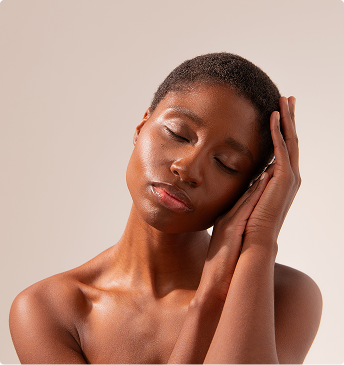Perimenopause and sleep: why your sleep suffers and what to do about it.
For women in their 40s and 50s, perimenopause (when your body starts to shift into menopause) and menopause (when you stop having periods) is a topic often discussed among friends.
Remember the ‘menopause’ episode in And Just Like That? Well, if Carrie, Charlotte and Miranda are happy to talk, albeit briefly, about one of the most obvious shifts in a woman’s life, then we are, too.
In fact, let’s get into it.
What used to be referred to as ‘the change’ is now better known as midlife. And instead of being a time when women were urged to ‘go gentle into that good night’ and cover up with a kaftan, midlife is now seen as a time where women can do more than just survive - they can (and do) thrive.
In fact in some cultures, a woman’s menopause is known as the ‘second spring.’
That’s not to say that ageing gracefully (or disgracefully…you do you) comes without challenges, and unfortunately, getting a good night’s sleep can be one of them. However, with the right support, tips and tricks, falling (and staying) asleep can be less of a nightmare.
Here, we take a look at some of the most common perimenopausal symptoms that can affect sleep and offer some solutions around how to tackle them.
Perimenopausal sleep issue: Hot flashes and night sweats.
Ah, the hot flash. Probably the most well-known symptom of the menopausal woman and there’s no doubt about it, hot flashes can be rough, however, there are a few things that can help. Keep your bedroom comfortably cool, the perfect sleeping temperature is said to be around 18 degrees so grab yourself a room thermometer and get ready to crank up that fan or aircon. Take a cool bath or shower before bed to lower your body temperature and dress in lightweight pjs, or sleep naked, and swap out your bed sheets for ones made with natural fabrics, such as cotton.
Perimenopausal sleep issue: Getting to sleep
Getting your body temperature right before you get into bed is the ideal first step to falling asleep successfully, so it’s great to develop a bedtime routine that not only cools you down but also lowers stress levels. Talk to any health practitioner about menopausal symptoms and one of the first things they say is — reduce your stress. So, before bed, try taking a (warm not hot) bath, listen to some calming music or a sleep meditation and read a few pages of a book. Setting the same wake-up time every day and (trying) to avoid naps longer than 20 mins is also sound advice given by the Sleep Foundation.
Perimenopausal sleep issue: Sleep Apnea
With the drop in oestrogen and progesterone comes an increased chance of sleep apnea in women (thanks, hormones). Why? Well, oestrogen and progesterone are also the hormones that help with muscle tone, and that includes those muscles in your airways. When hormones start to drop, the risk of sleep apnea — disordered breathing when sleeping — goes up. If you’re someone who suffers from it then some natural ways to approach it could be to try and sleep on your side (side pillows can help) as well as maintaining a healthy weight and avoiding alcohol before bed. If that doesn’t fully fix things, then sleep apnea machines are, frankly, a modern-day miracle. Talk to your GP about what you need to do to get fitted for the right one.
Perimenopausal sleep issue: Waking up in the night
The drop in melatonin, your body’s natural sleep hormone, during menopause goes hand in hand with trouble staying asleep. It sucks, we know. While melatonin supplements are available from your doctor there are a couple of things you can try before you head down that route. Staying clear of any liquids a few hours before bedtime can help stop your bladder from waking you up but if you do wake up during the night aim to stay in bed with the lights off and run through some breathing exercises or listen to a meditation on your phone, Headspace and Calm are both brilliant. Alternatively, get up and go into another room to read and try your hardest not to clock watch!
Perimenopausal sleep issue: Anxiety
You may have guessed by now that during the perimenopausal years it’s all about the hormones, or rather a lack of them. With the fluctuation of oestrogen and progesterone can come an increased risk of anxiety, which can also play havoc with your sleep. Dealing with anxiety is a delicate issue, and one that should be discussed with your doctor, but when it comes to anxiety and sleep it can help to think about how you approach your day rather than just your nighttime routine. Getting regular exercise as well as avoiding nicotine, caffeine and alcohol from late afternoon onwards is a good way to start as is avoiding large meals and spicy foods at dinner time. Again, reducing stress as much as possible during the day can be a gamechanger for a good night’s sleep so regular massages, yoga or pilates are a must. As is a good cognitive behavioural therapist (CBT) to talk through any underlying issues and to get the right support in place. Remember, relaxation is a skill that needs to be learnt — it’s not your fault if you don’t find it easy.
For a nighttime wind down for stress relief try popping a couple of drops of Sleep S.O.S Essential Oil into your (warm) bath followed by a spritz of Sleep Zen Pillow Spray one of our cooling Silk Pillow Cases.





